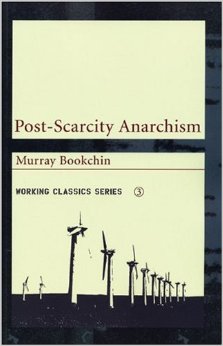Dear future humanity: please forgive us.
As we stand today, there are a lot of obstacles before us to forming communities dedicated to wholeness and justice. First, our society has never fostered the ability to listen to the needs of the vulnerable among us. Both our urban and rural communities have been designed to support systems of domination rather than oppose them. Indeed, there seems to be no collective desire to do so. Even more, there appears to be a culture-wide disgust--certainly not among all of us, but it is pervasive enough--for those radicals among us who suggest that this should be one of our major characteristics as a species. Branded as "liberal," utopian, or idealistic, too many of us have remained silent about injustice for too long, allowing the current social mores to continue moving in a direction toward further centralization, domination, and exploitation rather than reversing this course in the direction of nurture, love, peace, and wholeness. In addition, for those of us who begin looking to create communities founded in opposition to systems of domination, it is hard to know where to start. How do we survive? How do we begin thinking again about each other? About the earth? How do we get beyond mere recycling, environmentalism, or going green and begin to build communities that are designed in opposition to domination--that are just, decentralized, local, and sustainable? Can we end racism, sexism, homophobia, ablism and speciesism, while we also learn to care for our bodies and the soil beneath us? Can we learn to grow food again? Can we learn to be whole again? Can we learn to sustainably rely on the sun, the wind, the water, and the ground rather resorting to the exploitative energy systems embedded in our currently way of life?
Where do we begin?
Well...
I take an ecclesiological approach, believing that human beings have been created to live in communities that shape our lives together. Recently, I have stumbled onto social-ecology. It is a journey I have just started, reading Murray Bookchin's Post-Scarcity Anarchism. It's still early, but the approach seems so rich, so thorough, so re-orienting. I feel like I'm learning to walk again--for the first time, and right now I'm only at a crawl.
A good place to begin might be to provide a bit of a definition for social-ecology. For starters, in his 1992 essay "The Ecological Crisis and the Need to Remake Society," Bookchin argues that “the most fundamental message that social ecology advances is that the very idea of dominating nature stems from the domination of human by human.” In other words, nearly all of our current ecological problems are rooted in deep-seated social problems.
As Bookchin states in another essay, "What is Social Ecology?,"
Social ecology was among the earliest of contemporary ecologies to call for a sweeping change in existing spiritual values. Indeed, such a change would involve a far-reaching transformation of our prevailing mentality of domination into one of complementarity, one that sees our role in the natural world as creative, supportive, and deeply appreciative of the well-being of nonhuman life. In social ecology a truly natural spirituality, free of mystical regressions, would center on the ability of an emancipated humanity to function as ethical agents for diminishing needless suffering, engaging in ecological restoration, and fostering an aesthetic appreciation of natural evolution in all its fecundity and diversity.
"In such an ethics," Boockhin argues, "human beings would complement nonhuman beings with their own capacities to produce a richer, creative, and developmental whole – not as a 'dominant' species but as supportive one."
No doubt, in many ways, social ecology provides an important corrective to traditional theological approaches that either espouses a deity that is above and apart from the natural world or seeks to find one embedded within--creating a kind of "eco-spirituality" that fails address the real social factors and come to grips with reality. (And this point is made by Bookchin himself.) [See Murray Bookchin, "What is Social Ecology?" in Social Ecology and Communalism (Oakland, CA: AK Press, 2006), p.22.]
 What I find the most compelling in Bookchin's work is not just his scathing critique of society's indifference to our collective and individual wellbeing, but his hopefulness that things can be different and his desire to learn how to reconstruct the world so that it will be. We can hear this hope and desire for reconstruction in "Towards a Liberatory Technology," one of the several fantastic essays included in Post-Scarcity Anarchism...especially in his appeal for the forgiveness of future generations.
What I find the most compelling in Bookchin's work is not just his scathing critique of society's indifference to our collective and individual wellbeing, but his hopefulness that things can be different and his desire to learn how to reconstruct the world so that it will be. We can hear this hope and desire for reconstruction in "Towards a Liberatory Technology," one of the several fantastic essays included in Post-Scarcity Anarchism...especially in his appeal for the forgiveness of future generations.
A basic sense of decency, sympathy and mutual aid lies at the core of human behavior. Even in this lousy bourgeois society we do not find it unusual that adults will rescue children from danger although the act may imperil their lives; we do not find it strange that miners, for example, will risk death to save their fellow workers in cave-ins or that soldiers will crawl under heavy fire to carry a wounded comrade to safety. What tends to shock us are those occasions when aid is refused --when the cries of a girl who has been stabbed and is being murdered are ignored in a middle-class neighborhood.
Yet there is nothing in this society that would seem to warrant a molecule of solidarity. What solidarity we do find exists despite the society, against all its realities, as an unending struggle between the innate decency of [humanity] and the innate indecency of society. Can we imagine how [humans] would behave if this decency could find full release, if society earned the respect, even the love, of the individual? We are still the offspring of a violent, blood-soaked, ignoble history--the end products of [human] domination of [human]. We may never end this condition of domination. The future may bring us and our shoddy civilization down in a Wagnerian Gütterddämmerung. How idiotic it would all be! But we may also end the domination of [human] by [human]. We may finally succeed in breaking the chain to the past and gain a humanistic, anarchist society. Would it not be the height of absurdity, indeed of impudence, to gauge the behavior of future generations by the very criteria we despise in our own time? Free [humanity] will not be greedy, one liberated community will not try to dominate another because it has a potential monopoly of copper, computer "experts" will not try to enslave grease monkeys, and sentimental novels about pining, tubercular virgins will not be written. We can ask only one thing of the free men and women of the future: to forgive us that it took so long and that it was such a hard pull. Like Brecht, we can ask that they try not to think of us too harshly, that they give us their sympathy and understand that we lived in the depths of a social hell.
But then, they will surely know what to think without our telling them.
[Murray Bookchin, "Toward a Liberatory Technology," in Post-Scarcity Anarchism (Oakland, CA: AK Press, 2004), pp. 82-83.]

